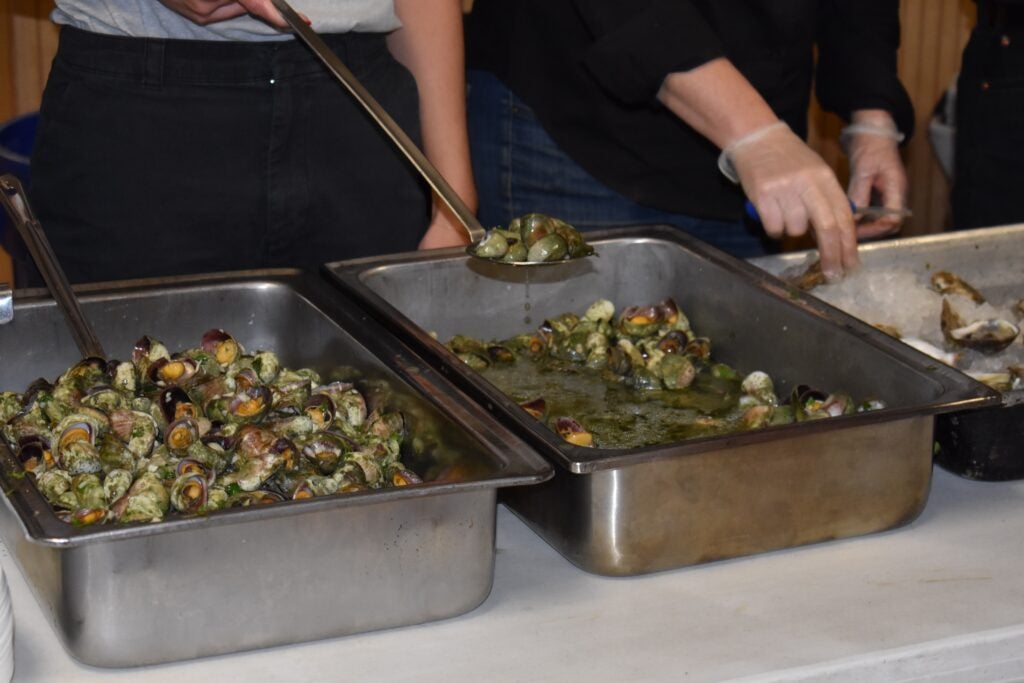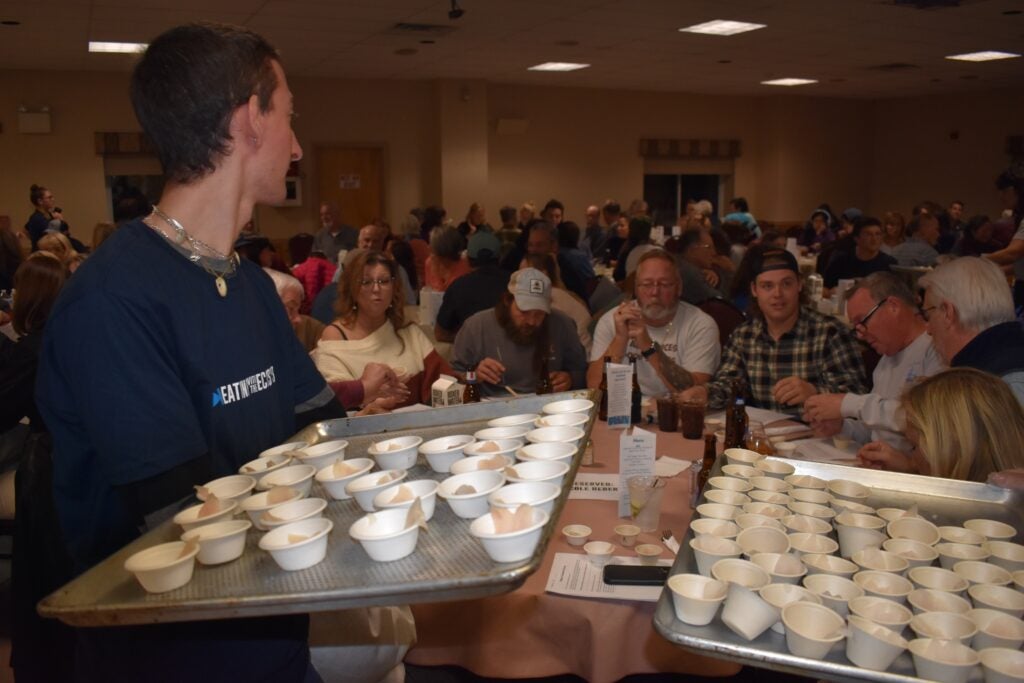Last month, Eating with the Ecosystem held their 10th Annual Community Seafood Dinner at the Elk’s Lodge in Wakefield. A gathering of fishermen, excited neighbors, and seafood aficionados, the event also serves as a major fundraiser for the nonprofit’s mission of promoting sustainable, place-based fishing practices in New England. The dinner, conceived by Eating with the Ecosystem founding board member and lifelong Pt. Judith fisherman Rodman Skyes, provided a multi-course meal for an eager, sold-out crowd.
Before the meal was served, diners had an opportunity to participate in an interesting public research survey from the Ikejime Project, conducting a blind taste test survey between normally-prepared and ikejime fish. Ikejime is a Japanese method of humanely killing and handling fish. Through this virtually painless method, the product is a much more flavorful fish with a longer shelf life than commercial catches. Through the Ikejime Project, ENRE professor Hiro Uchida aims to advance a sustainable seafood market through the creation of a new market for ikejime fish. He explains that, “We [the project team] believe [a new ikejime market] will benefit locally abundant but less-valued fish species caught predominantly by smaller boats in RI.” The survey results will help the team understand consumer preferences when blindly tasting ikejime fish.

Slipper limpets (above) are a snail-like filter feeder that are an underutilized delicacy highlighted at the dinner
To chef David Standridge, ikejime is not a new concept. “We use ikejime fish a lot at the restaurant. It’s just better,” he says. Standridge is the Executive Chef of The Shipwright’s Daughter in Mystic, Connecticut, as well as a board member with Eating with the Ecosystem. Employing the ikejime method enables local small-boats to bring to market a much more valuable and tasty product- all while being more humane and sustainable than commercially caught fish. Standridge explained, “They [local fishermen] do it and it’s worth their while because it increases the price of that fish and at the end of the day, a key metric for those guys is more money, less fish. It’s also just more sustainable so I think that makes them willing to do it, for sure.”
Splitting their time between the kitchen and dining room, Westerly resident Stead Fast had a unique experience at the event volunteering to help out with just about everything, noting: “It was fantastic. They gave me a plethora of experiences from setting up the tables to cleaning fish and talking with local fishermen. I even got to grill a little bit in the kitchen. It was beautiful.”

Volunteer Stead Fast (left) handing out samples of fish for the Ikejime Project’s survey
After the survey concluded, diners lined up with their plates ready to eat. Throughout every course, the main ingredients were locally caught and 100% donated by local fishermen. With a heavy emphasis on underutilized species such as Butterfish and the invasive Green Crab, the dinner helped highlight how little-known species seasonally found in our waters are just as delicious as “big name” species normally seen on restaurant menus. After a long night, diners filed out of the Elk’s Lodge exclaiming how delicious each course was–with a special shoutout to board member Rodman’s pot of his “world famous” chowder.
Written by Edward Cascella, CELS Communication Fellow

